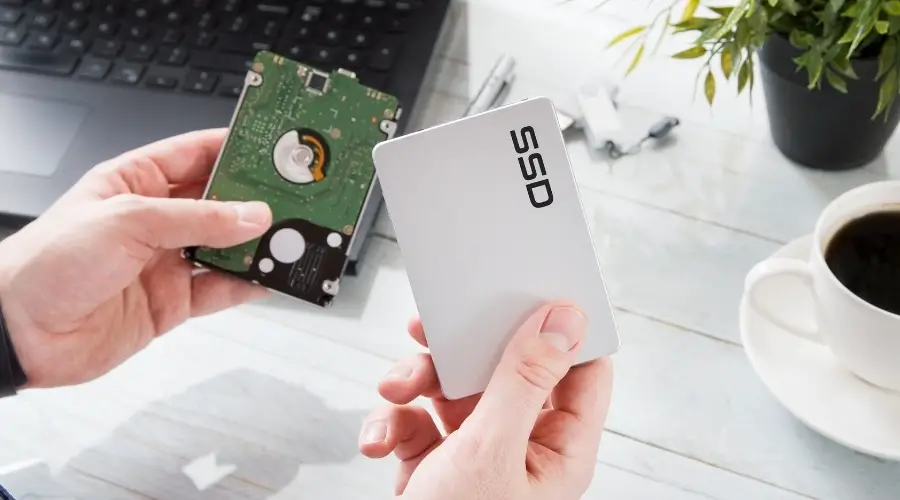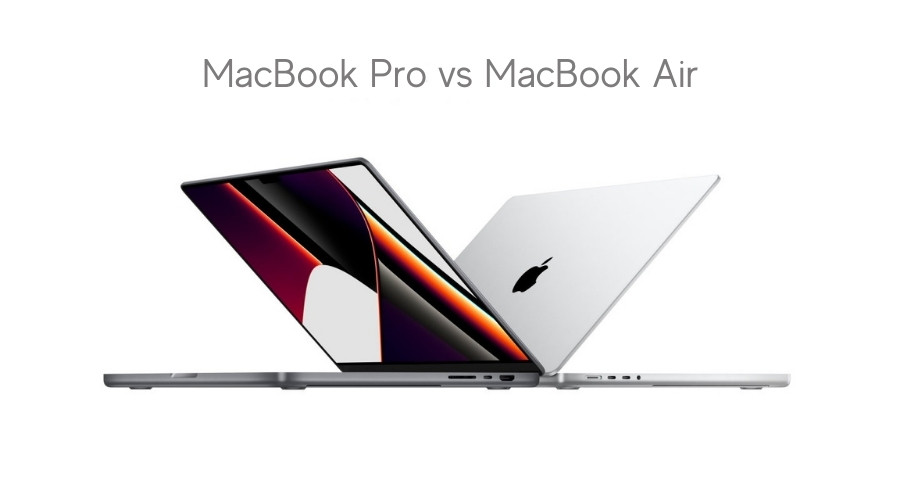SSD vs HDD: What’s the Difference?
The Solid State Drive (along with the Hard Disk Drive) appeared on the computer equipment market in 2022.
SSD vs HDD: What’s the difference?
A novelty has created a problem of choice. Which is better for the user? What should be considered when choosing, and what should be overlooked?
SSD vs HDD: The Main Differences
SSD hard drives and HDD hard drives are primarily used to store data securely. However, they perform their function differently.
Firstly, there is a fundamental difference in the way the system functions.
The HDD version records and reads data by moving a special head above the disk surface, which rotates rapidly.
The second example has no movable elements, and the “filling” resembles a set of microcircuits arranged aboard.
Price
As soon as users think about disks, the price is the first thing they consider. Hard drives have an undeniable advantage in this regard. You can expect to pay at least $50 for a standard 1TB drive.
The cost of an SSD is about four times as much – about $200.
Nevertheless, technology is developing rapidly, and the price difference between the two types of drives is decreasing every year.
Capacity
At the beginning of the 2000s, there was a huge difference in maximum capacities between the two types of drives.
This prevented SSDs from competing. These days, maximum capacities have already reached 4 TB. Hard disk drive capacity now reaches 50 TB.
Speed
Speed is often considered to be the most important indicator by users. SSD drives are considered to be the best in this regard. As compared to an HDD, this drive has several times the speed.
You can play the most complex games, launch the most complex applications and copy huge amounts of data in just a few seconds.
You cannot argue with that, because the acceleration of the system when using SSD for the operating system is quite noticeable in practice.
Defragmentation and fragmentation of disks
HDDs are best suited to large files, while bulky materials – such as photos, books, and audio recordings – combined with constant copying and deleting can lead to a slow hard drive. What causes this?
Because the file is scattered over its surface, the read head must search for fragments in different sectors, wasting time. Fragmentation is a result of this.
Defragmenting regularly is the best way to bring all parts of the files into a single chain. To maintain a good level of speed of work, it is essential to do this.
The operation principle of SSDs is fundamentally different, so such operations are not required.
Longevity and reliability
SSDs have special moving parts, unlike their competitors. Therefore, you can use a laptop during transportation, despite the vibrations, and not have to worry about loss of data or disruption of your work.
A hard drive is a completely different story. Magnetized blanks are used for storage on this drive.
Therefore, even a slight vibration results in the occurrence of the so-called broken sectors.
However, the design of an SSD, despite its obvious advantages, is limited in its ability to be used repeatedly.
A solid-state drive’s lifespan will be reduced if it is continually deleted, copied, and written to.
Noise level and shape
Everything is important in the modern world. A more compact drive will prove more popular. SSDs are an obvious winner in this regard.
HDDs are not suited to be reduced to miniature sizes due to their special design.
The rotation of HDD disks usually leads to the appearance of noise, which is characterized by crackling. Solid-state drives, on the other hand, are completely silent.
Conclusions
In the SSD vs HDD battle, it is impossible to determine a clear winner. Both drives have advantages and disadvantages.
A hard disk drive (HDD) is a slow, noisy, and reliable storage device; however, it may suffer mechanical breakdowns.
As such, they must be handled carefully as there is no mechanical impact, but they are inexpensive and large.
At the same time, SSDs are expensive and have a limited service life, but they are also silent, fast, and do not require defragmentation.
To determine what you exactly need to buy, first consider why you are purchasing the drive in the first place. The computer will be used for social networking, and you need to save a large amount of information for social purposes.
When it comes to networks and multimedia entertainment, HDDs are the best choice.
But if you never sit still, constantly travel, the system boot speed is important to you, you hate noise and often deal with photo and video processing in various programs – feel free to choose an SSD. You will not go wrong.



